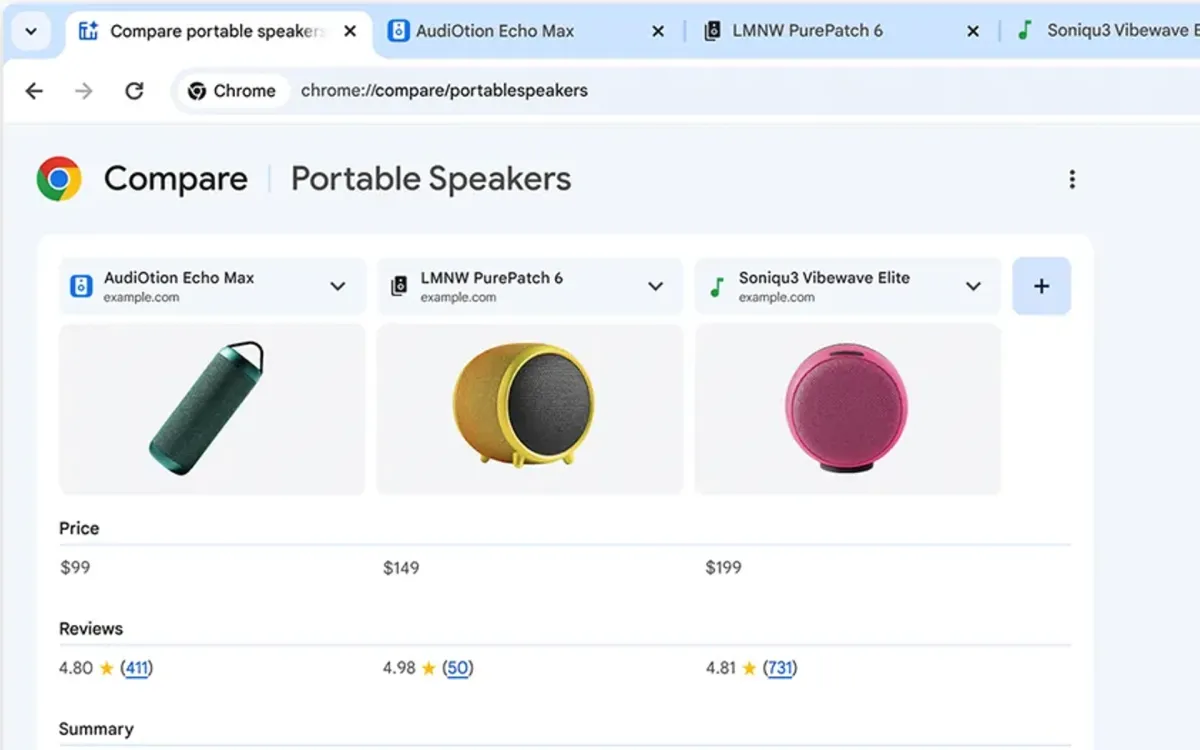
On August 1, 2024, Google announced the introduction of three new artificial intelligence (AI) powered features to its Chrome web browser. These features, which include Google Lens for desktop, Tab compare, and an enhanced browsing history search, aim to improve user experience by making web navigation more intuitive and efficient. The updates, leveraging Google's latest AI and Gemini models, are set to roll out over the coming weeks, starting with users in the United States.
The introduction of Google Lens to Chrome's desktop version marks a significant expansion of the visual search tool's capabilities. Previously available primarily on mobile devices, Google Lens has become a popular feature for identifying objects, text, and images in the real world through smartphone cameras. Now, desktop users will be able to utilize this tool directly within their browser window, seamlessly integrating visual search into their web browsing experience.
According to Parisa Tabriz, Vice President of Chrome, the desktop version of Google Lens will allow users to select, search, and ask questions about anything they see on a webpage without leaving their current tab. This functionality is accessed through a Google Lens icon in the address bar or via the right-click menu. Once activated, users can click or drag over any area of interest on the page. The selected content is then analyzed, and relevant information is displayed in a side panel.
Google Lens icon in the address bar
One of the key advantages of this integration is the ability to refine searches using multisearch. This feature enables users to add specific criteria such as color or brand to their visual queries, further narrowing down results. Additionally, users can ask follow-up questions to delve deeper into topics of interest. In some cases, an AI-generated overview may be provided, synthesizing the most pertinent information from across the web.
The second major feature announced is Tab compare, which is designed to streamline the online shopping experience. This tool addresses the common practice of opening multiple tabs to compare products, a process that can become unwieldy and time-consuming. Tab compare utilizes AI to generate a comprehensive overview of products from various open tabs, consolidating key information such as specifications, features, prices, and ratings into a single, easy-to-read comparison table.
This feature is particularly useful for consumers researching big-ticket items or complex products. For instance, someone shopping for a new Bluetooth portable speaker can use Tab compare to quickly assess different options without the need for constant tab switching. The AI-generated comparison table provides a clear, side-by-side view of essential details, facilitating informed decision-making.
The third feature focuses on enhancing Chrome's history search functionality. Recognizing that users often struggle to relocate previously visited websites, Google has implemented a more natural, conversational approach to history searches. Users can now type queries in plain language, such as "What was that ice cream shop I looked at last week?" and Chrome will attempt to identify and display relevant pages from the user's browsing history.
It's important to note that this enhanced history search is an opt-in feature. Users have the option to enable or disable it through their browser settings. Furthermore, Google has emphasized that this feature will not include any browsing data from incognito mode, maintaining user privacy for sensitive browsing sessions.
These new AI-powered features represent Google's ongoing efforts to integrate advanced machine learning capabilities into its products. By leveraging AI, Chrome aims to make web browsing more intuitive, efficient, and tailored to individual user needs. The introduction of these features also reflects the growing trend of AI integration in consumer technology, as companies seek to provide more personalized and intelligent user experiences.
The rollout of these features comes at a time when web browsers are increasingly becoming the primary interface for a wide range of online activities, from work and education to entertainment and commerce. As such, improvements in browser functionality can have a significant impact on user productivity and satisfaction.
While the initial release of these features is limited to the United States, it is likely that Google will expand availability to other regions in the future, pending user feedback and technical refinements. The company has not provided a specific timeline for international rollout.
It's worth noting that the implementation of AI in web browsers raises important considerations regarding data privacy and user consent. Google has traditionally been at the forefront of discussions about responsible AI use, and it will be crucial for the company to maintain transparency about how user data is collected, processed, and utilized in these new features.
As with any significant update to widely-used software, it may take some time for users to fully adapt to and leverage these new capabilities. However, the potential benefits in terms of improved search efficiency, shopping convenience, and browsing history management are likely to be welcomed by many Chrome users.
In conclusion, Google's latest AI-powered features for Chrome represent a significant step forward in the evolution of web browsing technology. By bringing visual search capabilities to the desktop, simplifying product comparisons, and enhancing history searches, Chrome is aiming to provide a more seamless and intelligent browsing experience. As these features roll out and users begin to incorporate them into their daily online activities, it will be interesting to observe their impact on web usage patterns and user satisfaction.
Key points
Google announced three new AI features for Chrome on August 1, 2024
Features include Google Lens for desktop, Tab compare, and enhanced history search
Google Lens on desktop allows visual search within browser windows
Tab compare generates AI-powered product comparison tables
Enhanced history search enables natural language queries for finding previously visited sites
Initial rollout limited to US users, with potential for future international expansion
Features leverage Google's latest AI and Gemini models
Updates aim to improve overall browsing efficiency and user experience

